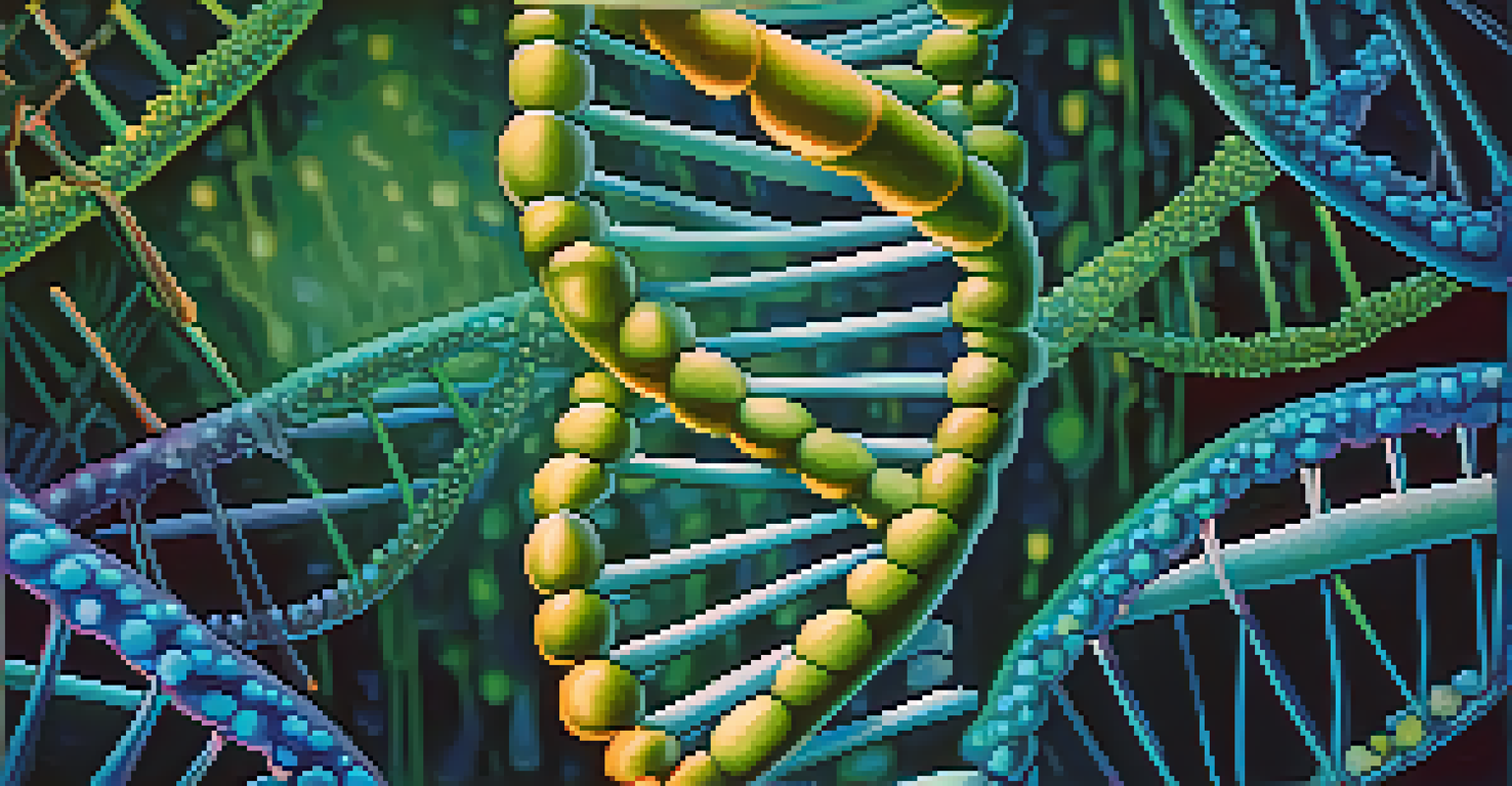The Role of Genetics in Tailoring Precision Medicine Treatments

Understanding Precision Medicine and Its Importance
Precision medicine is a tailored approach to healthcare that considers individual differences in genes, environments, and lifestyles. Unlike traditional medicine, which often adopts a one-size-fits-all strategy, precision medicine aims to deliver customized treatments that can significantly improve patient outcomes. By understanding the unique genetic makeup of each patient, healthcare providers can better predict which treatments will be effective.
Precision medicine is not just a new way of treating diseases, it's a new way of thinking about health and wellness.
The importance of precision medicine lies in its ability to target therapies more accurately. For example, cancer treatments that are designed for specific genetic mutations can lead to higher success rates and fewer side effects. This tailored approach not only enhances treatment efficacy but also empowers patients to make informed decisions about their care.
As research progresses, the potential for precision medicine continues to expand. We are moving toward a future where genetics will play a central role in not just treatment plans but also in prevention strategies, allowing healthcare providers to intervene even before diseases manifest.
The Role of Genetics in Personalized Treatment Plans
Genetics provides critical insights that help clinicians develop personalized treatment plans. By analyzing a patient's genetic profile, doctors can identify predispositions to certain diseases and select therapies that align with that profile. For instance, individuals with specific genetic markers may respond better to certain medications, while others may experience adverse effects.

Moreover, genetic testing can reveal mutations that influence drug metabolism. This means that some patients may require higher or lower dosages of a medication based on their genetic makeup. Understanding these nuances allows for more precise medication management, minimizing trial and error, which can be time-consuming and frustrating for patients.
Tailored Healthcare with Precision Medicine
Precision medicine customizes treatments based on individual genetic, environmental, and lifestyle differences to improve patient outcomes.
As genetic research continues to evolve, the integration of genetic data into treatment decisions will become more streamlined. This shift not only enhances the quality of care but also fosters a deeper connection between patients and their healthcare providers, who can now offer more informed guidance.
Genetic Testing: A Key Component of Precision Medicine
Genetic testing is a cornerstone of precision medicine, providing essential information about an individual's DNA. These tests can identify genetic variants that may affect health, helping doctors tailor treatments to each patient's unique genetic landscape. For example, a simple blood test can uncover mutations associated with an increased risk of certain cancers.
The future of medicine is not just about treating symptoms but understanding the underlying genetic makeup of individuals.
The results of genetic tests can guide decisions about preventive measures as well. If a patient is found to carry a mutation linked to breast cancer, they might consider more proactive monitoring or preventive surgeries. This proactive approach can significantly enhance the chances of early detection and successful treatment.
However, it's important to approach genetic testing with careful consideration. Discussions about the potential implications of test results—both positive and negative—should occur between patients and healthcare providers to ensure informed decision-making.
Genetic Variability: Why One Size Doesn’t Fit All
One of the fascinating aspects of genetics is variability; no two people have the exact same genetic makeup. This genetic diversity explains why individuals respond differently to the same medication, with some benefiting greatly while others may experience side effects. Recognizing these differences is crucial for developing effective treatment plans.
For example, genetic variations can influence how drugs are metabolized in the body. A medication that works well for one person might be ineffective for another due to differences in their genetic code. This variability underscores the need for personalized approaches to medicine that take each patient's genetic information into account.
Genetic Testing Guides Treatment Choices
Genetic testing reveals crucial information about a patient's DNA, allowing healthcare providers to tailor treatment plans and preventive measures.
By embracing this concept of variability, healthcare providers can move towards more individualized care, ultimately leading to better health outcomes and higher patient satisfaction.
Ethical Considerations in Genetic Testing and Treatment
As we dive deeper into genetics and its role in precision medicine, ethical considerations come to the forefront. Issues such as privacy, consent, and the potential for discrimination based on genetic information are crucial. Patients must feel confident that their genetic data will be handled with respect and confidentiality.
Moreover, informed consent is vital in genetic testing. Patients should fully understand what the testing entails, including potential risks and benefits, before proceeding. This ensures that they can make choices that align with their values and preferences.
Addressing these ethical concerns is essential for building trust between patients and healthcare providers. By fostering an open dialogue about the implications of genetic testing and treatment, we can create a more supportive environment as precision medicine continues to expand.
Real-Life Examples: Success Stories in Precision Medicine
There are numerous success stories that showcase the power of precision medicine in action. For example, patients with certain types of lung cancer have experienced remarkable outcomes when treated with targeted therapies designed for specific genetic mutations. These treatments have not only extended survival rates but also improved quality of life.
Another inspiring example can be found in the realm of rare genetic disorders. Advances in gene therapy have allowed for the development of treatments that address the root cause of these conditions, offering hope to patients who previously had limited options. These breakthroughs highlight the transformative potential of tailoring medicine to genetic information.
Embracing Genetic Diversity in Medicine
Understanding genetic variability is essential for creating personalized treatment plans, as different individuals may respond uniquely to the same therapies.
These success stories illustrate how precision medicine can change lives. As more patients benefit from tailored treatments, the case for integrating genetics into everyday healthcare becomes increasingly compelling.
The Future of Precision Medicine and Genetics
Looking ahead, the future of precision medicine is incredibly promising, driven by advances in genetic research and technology. With the continual decline in the cost of sequencing genomes, more individuals will have access to genetic testing. This could lead to a broader understanding of diseases and how they affect different populations.
Furthermore, the integration of artificial intelligence in analyzing genetic data is poised to revolutionize how we approach precision medicine. AI can help identify patterns and predict treatment responses, making it easier for healthcare providers to customize care plans effectively.

As we move forward, the collaboration between geneticists, healthcare providers, and patients will be crucial. Together, they can harness the power of genetics to create a more effective and personalized healthcare system that benefits everyone.